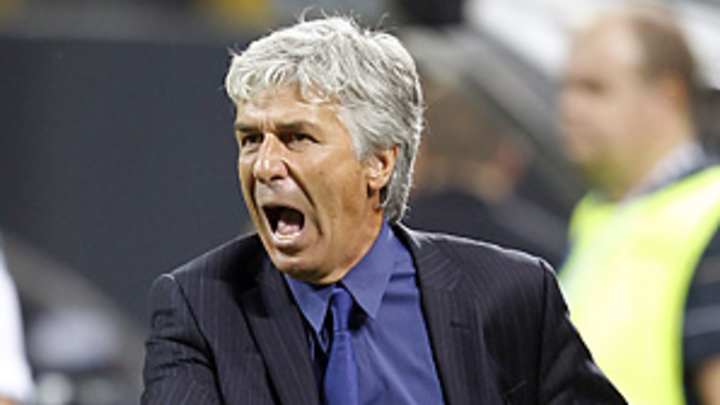Gasperini's failure inevitable given lack of backing by Inter hierarchy

Fast forward to the present day and both Delneri and Gasperini find themselves out of work, their reputations seriously dented from their first job with one of Italy's big clubs. In both cases, it is the common belief that their tactical systems and playing styles are to blame. It's thought the pair were too steadfast in their beliefs and that both, tactically and mentally, were simply "too provincial" to make the step to Inter (Gasperini) or Juventus (Delneri) work. Can it be that simple? Can two of the most widely respected coaches in a country synonymous with technical intelligence have got things so badly wrong?
Of course the game is littered with examples of coaches and teams triumphing in adversity, but it is increasingly those teams which have a plan and every element of the club working together harmoniously that succeed. The board, coach and playing staff must all be in sync to achieve the common goals.
In Serie A this is clearly highlighted by Novara and Cesena, two clubs who have achieved back-to-back promotions, rising from the third tier to the top division thanks to a carefully detailed plan that is well executed on and off the field. All of this was missing when Delneri and Gasperini made their leap.
At Juventus there were clearly mitigating circumstances for Delneri's perceived failure. The sweeping changes that followed the arrival of Andrea Agnelli as team presient were always going to take time to produce a viable contender. The abject failures of defender Marco Motta and midfielder Jorge Martinez meant the coach was never fully able to implement his preferred formation. Yet more than this, it was his desire to play on the counterattack -- as he did to great success with Sampdoria, Chievo and Atalanta -- that meant his reign was doomed.
Teams simply don't attack Juventus in the same way they look to impose themselves on Delneri's former clubs and the squad lacked the pace of play to be as effective on the counter as Napoli have been in recent seasons. This could lead many to wonder why Delneri was appointed in the first place, but interestingly, his successor -- club legend Antonio Conte -- employs the same wing-based 4-4-2 framework.
This is an indication that many of Delneri's lessons and methods were retained and that Conte, besides benefiting from a vastly improved squad, had the much more straightforward task of implementing a possession-based mentality rather than a complete overhaul. The results of this continuation are clear to see in Juve's early improvement this term.
At Inter however, it is relatively simple to offer the view that Gasperini was always destined to fail. Having learned nothing from the Rafael Benitez debacle of just 12 months ago (or indeed the 10 years prior to appointing Roberto Mancini in 2004) President Massimo Moratti and the Nerazzurri hierarchy failed to back their new coach in the press or, most importantly, the transfer market.
Even the most casual observer of Italian soccer would notice the same high defensive line and up-tempo style of Gasperini. That a similar shift for the same group of defenders failed under Benitez last season should have set alarm bells ringing and yet the club did not sign a single defender in the summer. This meant Gasperini had to rely on the aging legs of Lucio, Walter Samuel and Cristian Chivu, in addition to Andrea Ranocchia -- who failed to shine under him at Genoa last season -- to implement his ideas.
In midfield there's a clear lack of dynamism, of players able to play in both directions. Other than Esteban Cambiasso (and perhaps the injured Thiago Motta) the rest are too one-dimensional to play a 3-4-3 system. Andrea Poli, purchased late in the summer, merely added to the list of unsuitable players in this department.
In attack the situation was even worse; playmaker Wesley Sneijder was expected to leave but instead striker Samuel Eto'o did, robbing Gasperini of a player almost tailor-made for his ideas. That Diego Forlan arrived just reinforced the belief that Inter were not taking the coach's requirements into consideration. For all his tremendous ability, the Uruguayan has never been a player to stay out wide and defend the flank as Gasperini's system requires, a trait all too glaring in Inter's loss to Parma.
Of course it is easy to say it is Gasperini's own fault, that the coach should have adapted his methods to suit the men at his disposal like so many of the best tacticians would. But that is to miss the point, to overlook the very essence of who Gasperini is. Since the early 1990s when he was a coach in the youth sector at Juventus he has always employed the same methods and never deviated from his plan.
To appoint a coach who is so firmly wedded to a single formation and tactical concept will work only if he is supported in the transfer market. Nowhere is this more evident than at Napoli which employs both a three-man defense and counterattacking philosophy, and is flourishing both in Champions League and Serie A play.
In giving the job to Gasperini and then sacking him after just five competitive matches exhibits both naive and inept management from the Inter hierarchy. Like Gigi Delneri before him, Gian Piero Gasperini deserved better.
Adam Digby is a Turin-based freelance writer covering Italian soccer and is the co-founder of JuventiKnows.com. He can also be followed on Twitter at @adz77.
